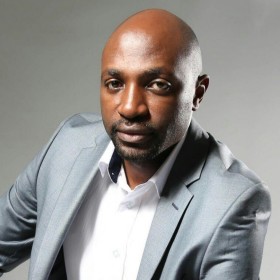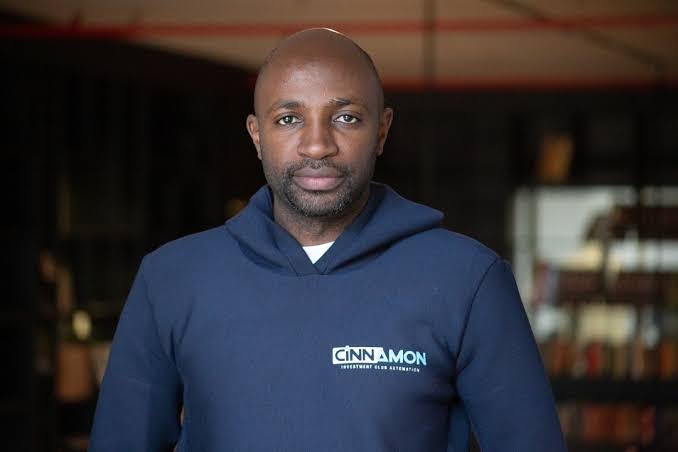Dickson Mushabe can best be described as a man with a knack for business. The enterprising ICT expert is the founder and CEO of Hostalite, a renowned Web Hosting, Design and Software Development company in Uganda and East Africa. A spin-off company called Hostalite Cyber Academy trains students with experience-based learning in information technology.
Information Technology Drives Him
Dickson’s passion for information technology saw him pursue studies up to the Masters level, where he attained an MBA majoring in Management Information Systems for Business.
Over the years, he has built himself up with experience spanning over nine years in information and communication technology, business automation, and information exchange systems. He is also the founder of Cinnamon Clubs, a local Fintech startup that automates financial records of savings groups for organizations. Mushabe authored a business book, “I Am Not Sorry For My Mistakes” and has served on the Board of the ICT Association of Uganda as a Director and is a member of the Advisory Council of the Global Shapers, a part of the World Economic Forum. Enough about the man’s credentials… Let’s peel back the layers and walk the journey of discovery into the critical stuff that this man is made of.
Early Life in Kiruhura
Mushabe wasn’t always enterprising. He traces his roots to a humble life deep in the evergreen villages of Kiruhura district, where he was born to farmers, Fred and Jennifer Tindimutunga. The young lad would later attend Rukarango and Kitunga boarding primary schools. After the seven primary school years, he joined Ntare School and later Mengo Secondary School. At this point, his education was like that of any other student with no special business undertakings that could be identified as a catalyst for starting his business journey.
However, when he joined Makerere University for his undergraduate degree, his entrepreneurial drive kicked into gear, and it is here that his quest for business success started.
The journey of a new entrepreneur is quite a murky one that is often lingered with hard-hitting experiential lessons and many mistakes. Dickson Mushabe’s was not any different. While many business owners regret some of the mistakes, they made while learning the entrepreneurial ropes, Dickson doesn’t. Rather, he sees them as critical building blocks to the person he is today and a key ingredient to the business acumen he has developed over the years.
“I am glad I made those mistakes then. If I hadn’t, I would be making them now and sinking,” Mushabe says.”
Trying his hand at business
In his book (I Am Not Sorry For My Mistakes), Dickson talks about an experience when he was younger. His father told him the soil was one of the biggest sources of money. This drove him to figure out how he could utilize the fullness of the earth to make an income.
After his A levels before joining university, a young Mushabe, armed with his father’s advice, tried his hand at tomato farming, but university education soon made its call and he answered.
He enrolled at Makerere University for a Bachelor of Science degree in Quantitative Economics. Although he was a university student that should be focused on academics, his desire for business never waned. He learnt of a friend who was selling his barbershop to go and start a life overseas. Mushabe jumped at the opportunity and made a down payment on the business with his faculty allowance, with a promise to pay back the remaining sum from the proceeds of the barbershop.
“I made good money,” Mushabe smiles while revisiting the memories fondly.
Regardless of how much money he was making, Mushabe wasn’t one to let his studies take the backseat. However, he does admit that work was a bit of a distraction and was a balancing act that he needed a good level of dexterity to properly balance.
“I tried so hard to attend lectures, but some clients would particularly want me to attend to them. I had to strike a balance, “he says.”
Learning from his Mistakes
With his new-found fortune. Mushabe was none the wiser. He hardly invested the money he was making from the barbershop. He instead bankrolled his circle of friends on outings and generally lived a more ostentatious life than what the average university student living in the halls of residence would live.
“I hardly ate hall meals,” he says, smiling. His taste buds had an affinity for expertly made restaurant cuisine, as a naive young man who had just come into money would.
Later on, Dickson thought it wise to diversify this business and opened a video library, a move that seemed both smart and calculative. After all, the old adage reaffirms the need not to carry all of your eggs in one basket. The barbershop was making good money providing capital for this new venture and the two businesses flourished, giving the student businessman even more returns.
However, with his bad spending habits, he wasn’t making any investments from the proceeds from the businesses. Instead, the more money he made, the more he spent.
“I was just running a business without any assets and spending all the money I made,” Mushabe laughs. He, however, thinks that if he had a mentor to hold his hand and guide him along the exciting journey of running a business that he was on, he perhaps would have exercised some better judgement.
The Sinking Point
His level of success was not enough. He wanted more. So much more. He embarked on an ambitious quest to expand his video library business, using up a large portion of what he had.
He also had a crowd of friends that simply walked into the library and took movies whenever they wanted without following up on payments.
“I would rather give a discount to a stranger so that he/she can come back. If you are really my friend, it should be in your best interest to support my business, especially if you know you can afford the service,” says Mushabe, now much wiser.
All these occurrences launched the snowball that would gradually morph into the raging avalanche that would bury his businesses, bringing about a cataclysmic end to the fortunes he had been enjoying. Like they say in bad situations, when it starts to rain, it pours. Mushabe found himself being taken to the unforgiving school of hard knocks where he would learn indelible lessons about how to run a business and carry out bookkeeping with the critical attention to detail of an old seasoned accountant.
While his businesses were still afloat, Mushabe graduated from university and was reluctant to get a job, despite the pressure from his parents for him to find what they called “proper work.” A friend of the family set him up for an interview for a job at a microfinance company, and he was offered UGX350,000 as his monthly payout, which he refused to accept.
“UGX350,000 was little money to me,” Mushabe declares emphatically. “I could make that in a few days from my business.” I wanted at least UGX700,000. ” Eventually, due to bad spending, his businesses closed, making the ambitious Dickson hit rock bottom.
The birth of Hostalite.
While at university, Mushabe loved computers, although he had never considered running a business that was based on the devices.
“I was always fascinated by computers and endeavored to learn as much as I could about them,” says the IT specialist.
Armed with his laptop as the only tool at his disposal and working from a small room that he shared with four other young men, Hostalite was born. However, this new venture did not have as smooth a sailing as the Barbershop initially had.
“We had a lot of rejection from potential clients,” Mushabe recalls.
His first client, Billy Robert Ahimbisibwe, proprietor of Select Garments paid Hostalite for his firm’s web-hosting service in dollars, making Dickson realise his business was viable. “I thought to myself: so people can actually pay me in dollars? I am in big business, ” says Mushabe while smiling.
As of today, Hostalite has more than 400 clients, including a UN agency, something that is remarkable for a company that started with only one laptop in a cramped-up room.
The book I Am Not Sorry For My Mistakes
Several years back, Mushabe took to social media to share his experiences and caution young entrepreneurs against making similar mistakes he made as a business owner. A friend of his Nelly Busingye, who was an ardent Facebook follower, encouraged him to write about his journey based on his social media posts. This is how I’m Not Sorry For My Mistakes was born. The book has since gone on to sell more than 2800 copies, making it a good seller by Ugandan standards for a self-published book. “People get touched by my stories and invite me to share my story on different forums,” says Mushabe, who has been to the Imagine Me African Breakfast and other events in Rwanda and Kenya as a motivational business speaker.

